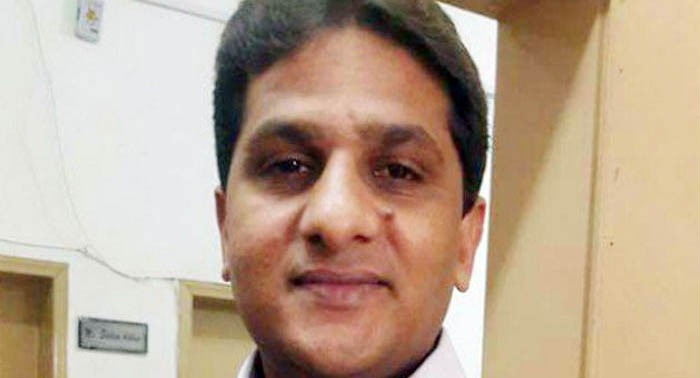
Peace activist Raza Mahmood Khan was abducted from his house in Lahore on December 2. What was his crime?

On December 2, around 15 youngsters gathered at Lowkey Lokai, a public space located in Al-Qadir Heights, Lahore, all concerned about the ever-deteriorating political condition of the country. They discussed the future and who would protect citizens if the civil and military forces played against each other? They also discussed the narratives furthered by Barelvi militancy in the context of extremism. It was an open debate. Youngsters presented their points of view on the occasion, discussed the clerics’ role in the country, and after this discussion ended, returned home.
The same evening, Raza Mahmood Khan’s fellow activists tried to reach him by phone but found that it was switched off. Raheem Ul Haq, who is a very close friend of Raza, and a teacher and activist, decided to search for him in person, along with his other friends. They reached his house and found it locked from outside but the light was on. Raza’s friends had the lock broken in the presence of Naseerabad Lahore’s police. All his belongings were present in his room except his computer.
An FIR was registered against unknown persons on the complaint of Raza’s brother Hamid Nasir Mahmood. According to Hamid, the police were reluctant to register the First Investigation Report (FIR) for unknown reasons, but after repeated efforts Raza’s friends and family members managed to have this formality completed.
Hamid says the whole family is disturbed because of Raza’s abduction, who he says is a loving person always ready to help out others. "We are worried about his fate and are having sleepless nights since the day he was abducted," says his brother. He requests the government of Pakistan and the provincial government to make efforts for his early recovery.
Raza’s friends are also equally worried for him. Safia Bukhari, an activist who has always remained in touch with him, says he is a hardcore peace activist. "We have been working for peace in the country as a team. We want to bring people from all religions close to one another, and our purpose is to eliminate hatred based on religions, class and other biases." She adds that Raza is an advocate of peace in South Asian Association Regional Countries (SAARC) and aims to eliminate poverty, extremism, terrorism and illiteracy in this region which has suffered endlessly due to wars and mutual conflicts.
For many there is curiosity about who Raza is and from where he has come, besides they want to know what were his activities that might have created risks for him. Was he a person who had nurtured enemies, had developed family feuds or was he just a peacemonger?
The details are that Raza belongs to a very humble family of Kasur and has always maintained a low profile. But what might have brought him to prominence recently is the fact that he had become a torchbearer of peace, particularly between Pakistan and India. He would never miss a protest or demonstration carried out to press for human rights and friendship.
Diep Saeeda, Chairperson of the Institute of Peace and Secular Studies (IPSS) says Raza was a member of Aghaz-e-Dosti/ Beginning of Friendship initiative. The organisation named after this initiative works for peace between the people of India and Pakistan. She says since Raza disappeared after attending a session on extremism, it creates some doubts about who could have been his abductors.
She shares it with TNS that she will stage protests across the country for the safe recovery of Raza. "A writ petition will also be filed in the Lahore High Court (LHC) besides contacting the interior ministry and Justice retired Javaid Iqbal who is the head of the Commission of Inquiry on Enforced Disappearance. A forceful campaign shall be launched for the early recovery of Raza. Every single day that passes will be disastrous and may lead to irreparable harm to him," she fears.
The common stance of several human rights activists and civil society organisations gathered under the platform of the Human Rights Commission of Pakistan (HRCP) is that such disappearances are unconstitutional, implying he has been picked by organisations working for the state. The fact that only his computer was taken away strengthen their belief. They stress no one is beyond the law, even the forces who pick or detain people for interrogation.
Why can’t they bring it to the notice of authorities that they are investigating a person, and follow prescribed procedures like presenting a person in the court and then taking his physical remand. Asad Jamal, an advocate struggling for human rights, says Enforced Disappearances are a sheer violation of human rights. "No-one is allowed to detain any person illegally. Unfortunately, the desire to punish people has seeped into our social fabric and is fuelled by the concept that the superior can punish the mediocre or inferior."
Jamal states that it is the duty of the state to protect the fundamental rights of its citizens. "Even terrorists should be produced in court and provided legal rights to defend themselves according to the law," he stresses. He believes only those found guilty in a court of law should be punished and not just anybody who is picked up and ‘disappeared’, without his relatives and near ones having a clue whether he is dead or alive.